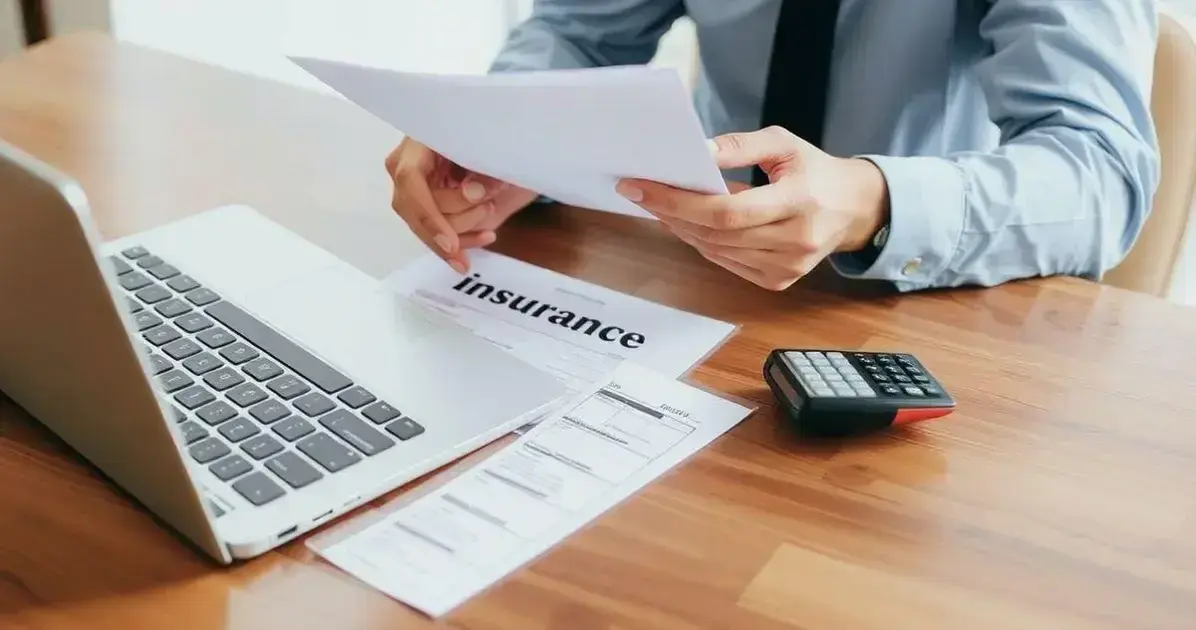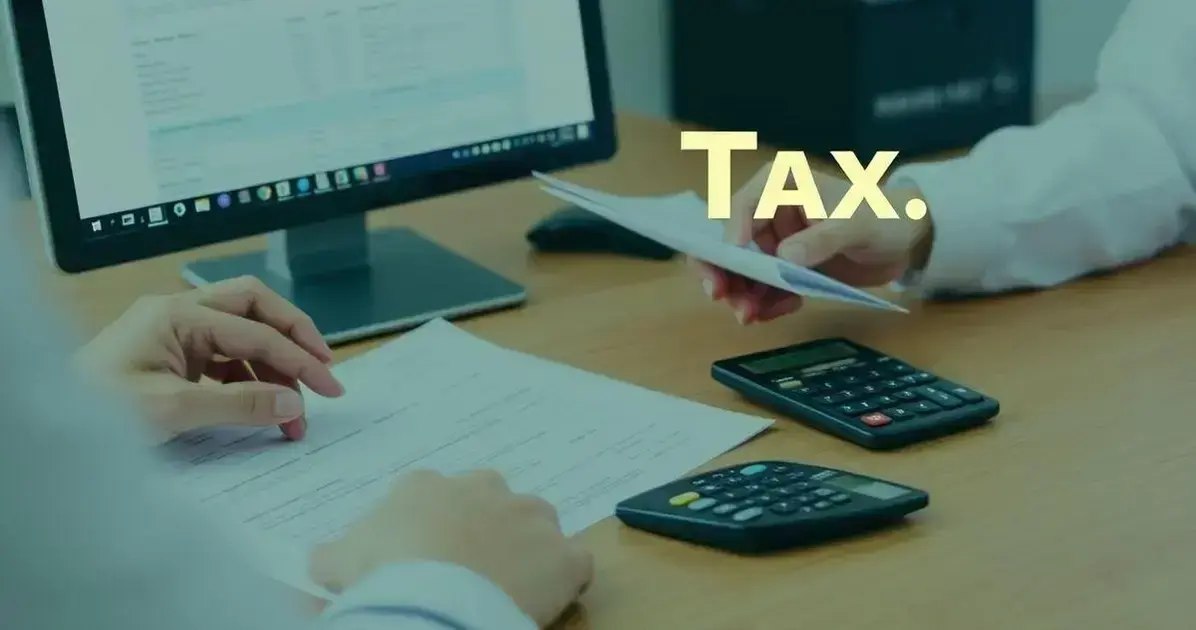The personal finance risk checklist is crucial for anyone looking to maintain their financial health.
With various financial pitfalls awaiting, knowing how to identify and manage these risks can make all the difference.
In this post, we will uncover the essential steps you must take, from understanding risks in budgeting to evaluating investment and retirement risks. Let’s dive into these crucial elements that can help you secure your financial future.
Understanding Personal Finance Risks
Understanding personal finance risks is the first step toward managing your money wisely. Financial risks come in various forms, from unexpected expenses to poor investment choices.
By recognizing these risks early, you can create plans that protect your finances and help you reach your goals. One useful tool to get started is a personal finance risk checklist, which helps identify potential threats before they become problems.
One common risk involves not having enough savings for emergencies. This can lead to reliance on credit cards, which can add to financial stress. Building an emergency fund can provide a safety net and help you handle unexpected situations without derailing your finances.
Another risk is not fully understanding your investments. Many people invest without knowing how their choices affect their financial future.
It’s essential to educate yourself about where your money goes and how to make informed decisions. This knowledge empowers you to take control of your finances and minimize potential pitfalls.
Identifying Risks in Budgeting
Identifying risks in budgeting is important for staying on track with your financial goals. One major risk is underestimating expenses. Many people forget about small costs, like subscription services or occasional treats, which can add up.
By tracking all your expenses, you can create a more accurate budget that reflects your true spending habits. Using a personal finance risk checklist can also help you spot these hidden expenses and avoid budget surprises.
Another risk comes from overestimating income. Sometimes, we expect bonuses or extra income that may not happen. This can lead to overspending and financial stress. It’s wise to base your budget on what you know you will earn, rather than hoping for more money to come in.
Additionally, failing to adjust your budget can be a significant risk. Life changes, such as moving to a new job or an unexpected expense, might require you to rethink your budget. Regularly reviewing and updating your budget helps ensure it remains effective and relevant to your current situation.
Evaluating Investment Risks
Evaluating investment risks is essential for making smart choices with your money. Every investment carries some level of risk, whether it’s in stocks, bonds, or real estate. Understanding these risks helps you decide which investments align with your financial goals and comfort level. Assessing how much risk you can handle is a key part of the investment process.
One common risk is market volatility. The value of investments can change quickly based on economic conditions. For example, the stock market can rise one day and drop the next. It’s crucial to stay informed about market trends and be prepared for fluctuations. This knowledge allows you to make better decisions and not panic when things get tough.
Another important factor to consider is the potential for loss. Every investment has a chance of not performing as expected. It’s wise to diversify your portfolio to spread out risks. By investing in different areas, you reduce the chance that one poor investment will drastically affect your overall wealth. Always remember that informed decisions help you navigate investment risks more effectively.
Insurance Considerations for Finance

Insurance considerations are an important part of personal finance that many people overlook. Having the right insurance can protect you from unexpected financial burdens.
For instance, health insurance is crucial to cover medical expenses. Without it, a single medical emergency can lead to overwhelming costs that affect your entire financial situation. Using a personal finance risk checklist can help you identify which insurance types you might be missing.
Another key type is homeowner’s or renter’s insurance. This type of insurance helps protect your home and belongings from damage or theft. If something happens, like a fire or natural disaster, having insurance can help you recover without suffering major financial loss. It’s vital to assess the value of your possessions and ensure you have adequate coverage.
Lastly, consider liability insurance, which protects you against claims of injury or damage. If someone gets hurt on your property, liability insurance can help cover legal fees and medical costs. Regularly reviewing your insurance policies ensures you have the right protection in place to manage risks and keep your finances secure.
Debt Management Risks
Debt management risks can create serious challenges for your financial health. One major risk is missing payments, which can lead to late fees and a drop in your credit score. When you miss payments, it becomes harder to borrow money in the future.
To avoid this, it’s crucial to create a budget that allows you to track when bills are due and ensure you have enough set aside to make timely payments. A personal finance risk checklist can guide you in monitoring these key payment dates and risks.
Another risk is accumulating too much debt. When you rely on credit for everyday expenses, it can be easy to lose track of how much you owe.
High debt levels can create financial stress and limit your options for making big purchases, like a house or car. It’s important to regularly assess your debt and prioritize paying it down to maintain a healthy balance.
Lastly, relying solely on debt consolidation can be misleading. While it seems helpful to combine multiple debts into one payment, it doesn’t eliminate the underlying issues.
If you don’t change your spending habits, you may end up in the same situation. Taking time to understand your debts and learning how to manage them wisely helps reduce risks in the long run.
Emergency Fund Importance
An emergency fund is an essential part of personal finance that everyone should consider. It acts as a financial safety net in case of unexpected expenses like medical bills, car repairs, or job loss.
Having money set aside can give you peace of mind and help you avoid falling into debt when surprises arise. Using a personal finance risk checklist can guide you in building and maintaining this crucial safety net.
The general rule is to aim for three to six months’ worth of living expenses in your emergency fund. This amount varies based on your individual situation, but having this cushion allows you to cover essential costs while you recover from a financial setback. Regularly contributing to your emergency savings is key to building this fund over time.
Furthermore, without an emergency fund, you may find yourself relying on credit cards or loans during tough times. This can lead to more debt and financial stress. By prioritizing an emergency fund, you’re taking an important step toward securing your financial future and being prepared for whatever life throws your way.
Retirement Savings Risks
Retirement savings risks are a vital concern for anyone planning for the future. One major risk is not saving enough money over time. If you start saving late or don’t contribute regularly, you may find it hard to maintain your lifestyle when you retire.
To avoid this, set clear savings goals and contribute to your retirement accounts consistently. A personal finance risk checklist can help you identify key saving milestones and keep you on track.
Another risk involves investment choices. Many people invest without understanding the potential ups and downs. If your savings are too conservative, you might miss out on growth. Conversely, risky investments can result in losses. It’s important to balance your portfolio based on your age and retirement plans, ensuring that your money is working effectively for your future.
Lastly, inflation poses a real threat to retirement savings. Over time, the cost of living can rise, which means that the money you save today may not buy as much in the future. It’s crucial to consider inflation when planning your retirement savings. Regularly reviewing your savings strategy helps you stay on track and adjust to avoid losing valuable purchasing power over time.
Taxation Issues in Personal Finance

Taxation issues are an important part of managing personal finance. Understanding how taxes work can help you make better financial decisions. For example, many people are not aware of the deductions and credits they can claim. These can reduce your taxable income and save you money. Knowing what expenses are deductible can help you keep more money in your pocket. Using a personal finance risk checklist can help you identify potential tax risks and opportunities.
Another issue is understanding the difference between short-term and long-term capital gains. Selling an asset like stocks or property can result in different tax rates depending on how long you held the asset. Long-term gains are usually taxed at a lower rate, which means holding onto your investments longer can save you money in taxes. So, it’s important to plan when to sell your investments.
Finally, failing to plan for taxes can lead to unexpected bills at tax time. Many people do not set aside enough money to cover their tax liabilities. This can result in a large payment due or even penalties. By estimating your tax obligations throughout the year and saving accordingly, you can avoid surprises and manage your personal finances much more effectively.
Personal Finance Risk Checklist: Utilizing Financial Advisors Effectively
Utilizing financial advisors effectively can greatly improve your personal finance situation. A good advisor can help you set realistic financial goals and create a plan to achieve them.
Before meeting with an advisor, it’s helpful to gather your financial documents and list your goals, whether it’s saving for retirement, buying a home, or planning for children’s education. This information will give your advisor a clearer picture of your needs.
It’s also important to ask questions and communicate openly with your financial advisor. Don’t hesitate to inquire about their qualifications, fees, and investment strategies. A good advisor will take the time to explain their recommendations and help you understand the reasoning behind their advice.
This way, you will feel more comfortable and confident in your financial decisions. Incorporating a personal finance risk checklist into your discussions can ensure you cover all critical areas and reduce overlooked risks.
Finally, keep in mind that a financial advisor is not a one-size-fits-all solution. Your needs may change over time, so it’s essential to review your financial plan regularly. Schedule check-ins with your advisor to discuss your progress and adjust your strategy as necessary. This proactive approach will help ensure you stay on track to meet your financial goals.
Financial habits are crucial for maintaining good personal finance. One healthy habit is tracking your spending regularly. By knowing where your money goes, you can make informed decisions about where to cut costs. This practice helps you avoid overspending and encourages you to stick to your budget. Remember, small changes in spending can lead to big savings over time.
Another effective habit is setting clear financial goals. Whether you want to save for a vacation, pay off debt, or build an emergency fund, having specific goals helps keep you focused. Write down your goals and break them into smaller, manageable steps. This way, you can measure your progress and stay motivated to reach your financial milestones.
Lastly, reviewing your financial situation regularly is essential. Take time each month to review your budget, savings, and investments. This helps you identify any areas where you may need to adjust your plan. Regular reviews ensure you stay on track with your financial goals and can adapt to any changes in your circumstances.